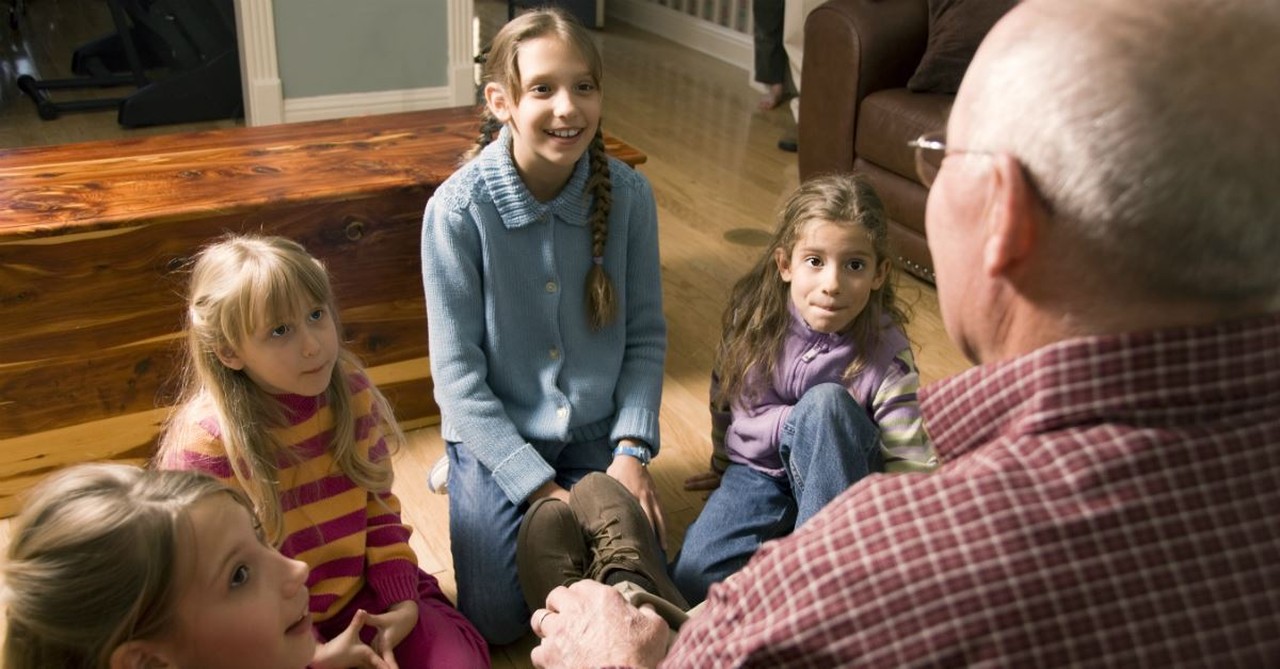8 Ways to Increase Your Spiritual Growth as You Get Older

I admire an elderly go-getter in my church. Adventurous and full of joy, she pursues God’s purposes with zest. She’s not slowing down; she’s revving up with eternity in mind!
Never assume retirement from one’s lifework means retirement from spiritual growth. Getting older gives us the freedom to pursue God more and become an influencer in His kingdom. The latter years of a person’s life are the time to stretch spiritually and expand ministry!
Here are eight ways the Lord is teaching me, a senior citizen, to grow spiritually.
Photo Credit: unsplash/huyen-nguyen
1. Grow Older Gradually

1. Grow Older Gradually
SLIDE 1 OF 8
I once saw a picture of a digitally-aged, gray-haired Barbie doll online. “Very Old Barbie” had wrinkles and charming smile lines. I already have more wrinkles than a Shar-Pei pup; so even in a time of anti-aging creams, double-chin lifts, and “guaranteed” wrinkle removers, I’m not sure I’ll ever look as good as Very Old Barbie.
Aging is inevitable, but we shouldn’t rush aging with foolish decisions. Each day, we make choices that determine our character in old age. My spiritual mentor, Nancy DeMoss Wolgemuth, said her goal since childhood was to be “a godly, old lady.” She’s always had an image of what that old lady would look and be like. Being a godly senior doesn’t happen overnight; it’s a growing process into spiritual maturity.
Eleanor Roosevelt once said, “Beautiful young people are accidents of nature, but beautiful old people are works of art.” Like fine art, godly aging requires skill, the investment of time, and creative effort. In cooperation with the Holy Spirit, embracing and applying scriptural truth, we will become more like our Savior.
Photo Credit: Thinkstock/Halfpoint
2. Grow Older Gracefully

2. Grow Older Gracefully
SLIDE 2 OF 8
Saved by God’s grace, we must also grow by grace. We are aging gracefully when we prepare our lives for an eternity with God. He will faithfully perfect us in eternity—body, soul, and spirit (1 Thessalonians 5:23-24); but again, we need to cooperate with His efforts to change us now.
When I decided to invest in my older years, the first thing I did was pray for wisdom (James 1:5). Then I made some aging-gracefully choices:
- I chose to be a loving, forgiving woman with no room for bitterness (Colossians 3:13-14).
- I chose to be a woman of purpose, faithful to God and my husband (Ephesians 5:22-24).
- I chose to represent Christ with godly character and stand for truth (2 Corinthians 5:20; Ephesians 6:14).
- I chose to serve others, but also lead by stirring up women to live for Christ (Mark 10:44-45; Hebrews 10:24).
- I chose to live by biblical priorities, not the whims of culture; and to use my time, talents, and “treasures” as a good steward (Matthew 6:33; 1 Peter 4:10).
- I chose to live in light of eternity and leave a lasting legacy on earth (2 Corinthians 4:18; Psalm 78:4).
I’m not perfect, but at least I have a biblical template for decisions, and my best choice is to partner with Father God in my sanctification.
Photo Credit: Thinkstock/artisteer
3. Grow Older Guiltlessly

3. Grow Older Guiltlessly
SLIDE 3 OF 8
Growing older guiltlessly doesn’t mean, “Do what you want and don’t feel bad about it.” Rather, it means living in light of our forgiveness in Christ and not condemning ourselves. We are accepted in the Beloved. God has holy purposes for us (Ephesians 1:6-8).
As we age, our spines may curve to cause a stooped appearance; but too many times I’ve seen the elderly burdened by past sins that weighed down on them, bowing their shoulders even more.
In Christ, we are forgiven and without guilt—this is judicial forgiveness. By keeping short sin accounts—confessing (admitting) personal sins—we can also live guiltless in “relational forgiveness” and restored fellowship with God. Failure to confess sin invites the chastening of the Lord; forgiveness restores our joy, no matter our age (1 John 1:9).
Photo Credit: Thinkstock/mbolina
4. Grow Older Gently

4. Grow Older Gently
SLIDE 4 OF 8
As older Christians, we might be kind to and tolerant of others and reserve the harshest criticism for ourselves. A frustrated, elderly man berated himself because he couldn’t figure out how to use a new television remote controller. “You’re stupid, stupid, stupid!” he yelled, slamming down the remote. A woman dropped a bowl of brownie batter in the kitchen and said, “Fumble fingers. Can’t you do anything right?”
I would love to tell those dear, elderly people, “Don’t be so hard on yourself. Give yourself some grace.” Negative conversations with ourselves—a reflection of our thoughts—will magnify in old age unless we learn to eliminate or manage them with the Lord’s help (2 Corinthians 10:5).
Sometimes, the elderly continue to push themselves with internal dialogues that are no longer realistic. With age comes the need to recognize new limitations. Perhaps we can push through some perceived limitations to achieve more than we dreamed possible, but other constraints are simply part of the human condition due to the fall.
The Lord loves His children at every stage and season of life. He says come unto me and I will give you rest (Matthew 11:28-29). He speaks peaceably to us. He encourages and delights in us. He understands when we falter and fail. And He wants us to be gentle with ourselves in everything except sin—that needs to be rooted out without mercy!
Photo Credit: unsplash/gus-moretta
5. Grow Older Gladly

5. Grow Older Gladly
SLIDE 5 OF 8
As we age, there are new inconveniences and things that test us daily; but we can choose to be grateful instead of grumbling. We can decide to notice and be thankful for little things. It’s not a matter of seeing life through rose-colored glasses, but rather responding to life with the eyes of Christ and power of the Spirit. It’s the power of giving thanks (1 Thessalonians 5:18).
An old Hasidic saying describes exactly how I feel about aging: “For the unlearned, old age is winter; for the learned, it is the season of the harvest.” This is the reason I face growing older with a glad heart, not a grumpy one.
There is joy in the harvest of a life seeded with obedience and faithfulness. We see this joy when we know how to respond in wisdom in a difficult circumstance. We’re aging with a godly perspective. Joy is also played out in observing people we have led to Christ or mentored. Also, when we create hunger for seeking God in our family and then find joy in children or grandchildren who follow His ways.
Christians ought always to be glad, even in the aging process. Sweet Pollyanna, a cheerful and optimistic character in the book and movie, Pollyanna, was reviled for living out the “glad game” her parents taught her. She always tried to find at least one good thing in every lousy situation.
Today, those who choose gladness or look on the bright side instead of becoming bitter in circumstances might be described as “a Pollyanna.” But there is actually a psychology of “positivity bias” called the “Pollyanna Principle.” A bias isn’t always negative; sometimes it can be a very good thing, especially as we age. Find the good and be glad!
Photo Credit: Thinkstock
6. Grow Older Guilelessly

6. Grow Older Guilelessly
SLIDE 6 OF 8
“Guile” is an interesting word and has so many shades of meaning. Satan was said to “beguile” Eve in Eden. To beguile is to deceive or lead astray. Being guileless is exactly the opposite. It’s having pure motives and speaking from a heart of integrity. In John 1:47, Jesus said that Nathanael was a man “in whom is no guile!” Jesus knew Nathanael’s heart. Nathanael was a man of honest intent—pure and innocent, trusting and straightforward.
Being guileless is a good goal for the elderly. To be guileless, we must be honest with ourselves—honest about needs and limitations and open to help from others. We must be unsuspicious and trusting. That can be hard for the elderly. We’ve experienced bad things in our lives and are likely to be suspicious or fearful of other people.
To be guileless, we must also be frank. That doesn’t mean bitingly direct; we must always temper our words with respect and love. But as we grow older, we should never be afraid to speak from the heart and express our deep convictions, especially to the next generation.
Photo Credit: unsplash/Kamila-Maciejewska
7. Grow Older Gallantly

7. Grow Older Gallantly
SLIDE 7 OF 8
In Israel, our tour guide, a former soldier, told the tales of Masada. During this storytelling, he taught us the word “Rak Chazak!”—the Israeli battle cry. It called the Jewish soldiers to “be strong and of good courage.”
God often used the elderly in scripture to do gallant things. When I think about aging with courage, I remember Exodus 17:8-13. When an aged Moses raised the staff of God over his head, Israel prevailed in battle; but when he grew tired and lowered the staff, the enemy prevailed. Desiring victory, Aaron and Hur brought a stone for Moses to sit on while they stood beside him, holding up his arms.
God has many assignments for His senior soldiers of the cross. We may get weary in well-doing and need the encouragement and help of “fellow soldiers.” But we must stay in the fight, keep our armor in place, and not retire from God’s plans for us to overcome. He gives power to the weak and will complete His work in and through us. Remember, Rak Chazak! Be strong and of good courage.
Photo Credit: unsplash_henry-hustava-knight
8. Grow Older Grandly

8. Grow Older Grandly
SLIDE 8 OF 8
While we don’t want to rush toward our final resting place, we do want to be prepared. Nancy Wolgemuth expressed this so well: “Over the past week or so, my husband and I have been shopping for cemetery plots. Now, we’re hoping we don’t have to use them any time soon, but we think this is one of those things that’s a good idea to think about while you can still think about it.”
Perhaps you’ve thought about what you want on your tombstone, or what you want said at your funeral or celebration service. But primarily, growing older grandly is not so much about your tombstone as it is your touchstone—the standard against which you lived your life and influenced others for Christ. It’s about leaving a legacy that proclaims your faith even after you’re laid to rest (Psalm 71:17-18). How will you be remembered? What is the testimony you leave behind? Does your family know the Savior you love and serve? What can you do now to ensure a “grand exit” that will both bless and challenge your family? These are important questions to consider now.
No matter your physical age, how are you investing in your latter years right now? Do your earthly investments count for eternity? What can you do to amplify your spiritual growth and have a bigger impact on those around you?
Dawn Wilson and her husband Bob live in Southern California. They have two married sons and three granddaughters. Dawn assists author and radio host Nancy DeMoss Wolgemuth with research and works with various departments at Revive Our Hearts. She is the founder and director of Heart Choices Today, publishes Upgrade with Dawn, and writes for Crosswalk.com. Dawn also travels with her husband in ministry with Pacesetter Global Outreach.
Photo Credit: GettyImages/Blue-Cutler
Originally published March 27, 2019.









